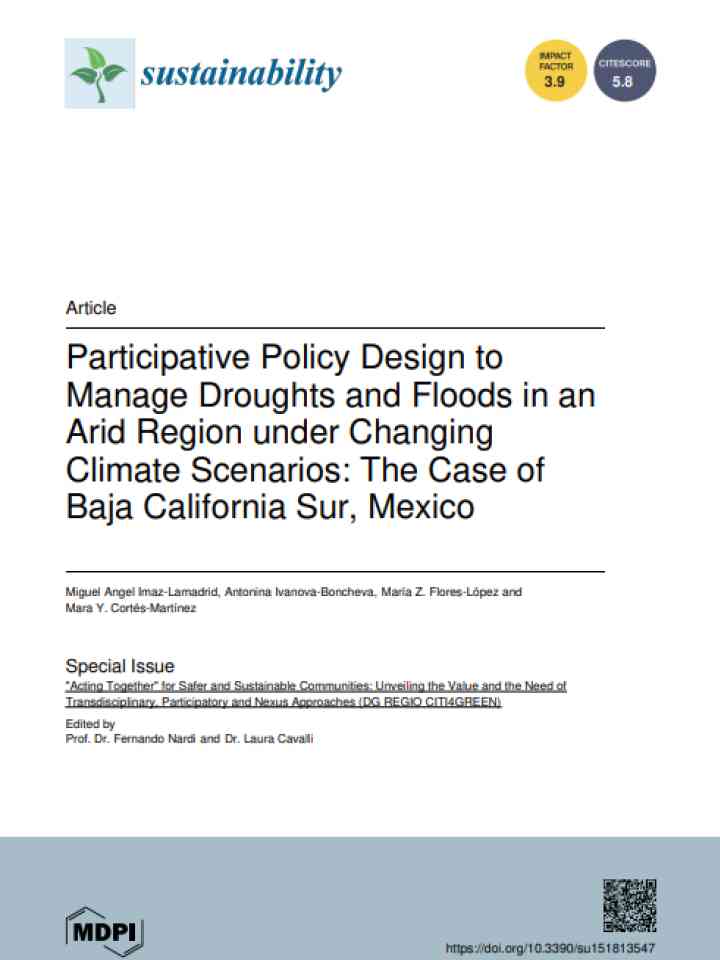Participative policy design to manage droughts and floods in an Arid Region under changing climate scenarios: The case of Baja California Sur, Mexico
At the request of the National Water Commission of Mexico (CONAGUA) for the Regional Water Plan (PHR), the authors designed and applied a methodology based on a web-based consultation in conjunction with digital survey tools to understand the opinion of communities, key participants, and researchers with regards to flood and drought risk management. Workshops were conducted in five municipalities of Baja California Sur, followed by an interdisciplinary analysis that integrated hydrological considerations with critical social, economic, environmental, and legal factors through the application of the PESTEL (Political, Economic, Social, Technological, Environmental, and Legal) framework.
The findings indicate a clear and widespread awareness that floods and droughts heighten risks to livelihoods; however, deficiencies in various areas complicate effective risk management. The timely dissemination of information and the inclusion of communities in mitigation and adaptation strategies would enhance the effectiveness of efforts to reduce vulnerabilities and strengthen resilience against climate extremes. Achieving these objectives requires a collaborative effort involving governmental, social, and private sector stakeholders.
Explore further

